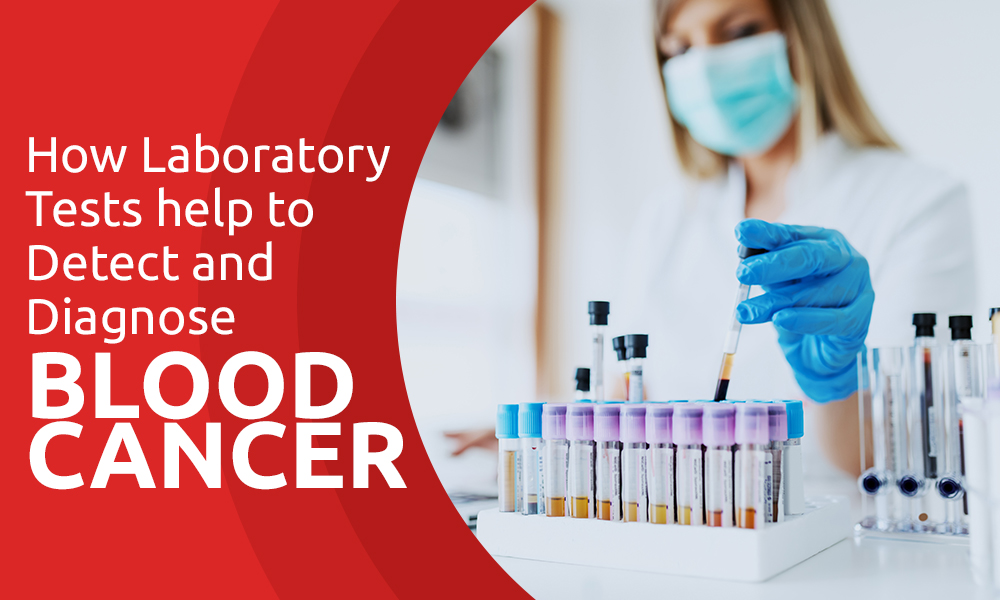Are you suspecting cancer? If yes, then the doctor may ask to perform some cancer blood tests or other laboratory tests. This will help to analyse urine or biopsy of suspicious area for further guidance. Though blood tests cannot exactly tell if you have cancer or non-cancerous condition, they will give some clues to the doctor about what is there inside your body.
When the doctor orders cancer blood tests to identify signs of cancer, it does not mean there is a cancer diagnosis and you are having cancer. Go through this blogpost to know what your doctor might consider when conducting cancer blood tests.
What your doctor is looking for
The doctor collects your blood samples to detect for cancer. After this, he will analyse your blood tests at the laboratory to identify any signs of cancer. The blood samples might show proteins, cancer cells or other substances made by cancer. The tests provide an idea to the doctor of how well the organs are working and whether they have any affect due to cancer.
Some types of blood tests to diagnose cancer are the following:
- Complete blood count (CBC) – The blood test helps to measures amount of different kinds of blood cells in your blood sample. The test can detect blood cancers when there are very less or too many unusual cells. Thus, a bone marrow biopsy can confirm the diagnosis of blood cancer.
- Blood protein testing – This is a test to check for several proteins in the blood and detect unusual proteins in the immune system or immunoglobulins in people with myeloma. Other tests like bone profile blood test can confirm suspected diagnosis.
- Tumor marker tests – Tumor markers are the chemicals from tumor cells that remain in the blood. But tumor markers can be produced by normal body cells and the levels might be significantly elevated for non-cancerous conditions. This can restrict the probability for tumor marker tests in diagnosing cancer. The most suitable way for using tumor markers in the diagnosis of cancer is still unknown. Some examples of tumor markers are –prostate-specific antigen (PSA) for prostate cancer, alpha-fetoprotein (AFP) for liver cancer, calcitonin for medullary thyroid cancer, cancer antigen 125 (CA 125) for ovarian cancer and human chorionic gonadotropin (HCG) for cell tumors such as ovarian cancer and testicular cancer.
- Circulating tumor cell tests – The blood tests can help to detect cells that break due to cancer and are floating into the bloodstream. The Food and Drug Administration approves circulating tumor cell test to assess people with prostrate, breast or colorectal cancer. This test is not commonly used in a clinical setting.
What the test results actually mean
The doctor interprets your test results carefully as different factors might influence test outcomes like variations in the body. Besides, noncancerous conditions might sometimes be the reason for unusual test results. For other cases, cancer might be there though blood test results are normal. The doctor will assess your test results and know whether the levels fall within a normal range. He may even compare your results with those from earlier tests.
What happens in the next part?
Though urine and blood tests may give clues to the doctor, other tests are necessary for further diagnosis. For most types of cancer, a biopsy can help to obtain the sample of suspicious cells for testing and conducting the ultimate diagnosis.
The tumor marker levels will be evaluated in due course and your doctor fixes follow-up testing within a few months. Tumor markers are most helpful after diagnosing cancer. With these tests, the doctor can determine whether your cancer is growing further or responding well to the treatment.
Once you complete the treatment for cancer, using cancer blood tests won’t be of much help to watch for the return of cancer. Make sure you discuss about the specifics of cancer with your doctor.
Thus, you need to see your doctor and perform necessary blood tests to know if you are having cancer.
Read More – How to Lose Weight?


